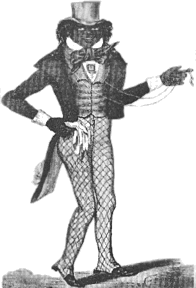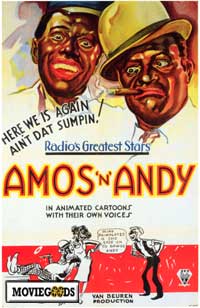Being Heard
I remember one day spending hours writing and rewriting a post trying to politely explain to some hopeful writer who sent me bits of the Native American romance she wrote that there were some serious issues in her research. I don’t mind offering assistance to new writers, but sometimes it can be a dangerous prospect. This woman got really mad at me when I pointed out to her that she should pick one tribe and look into it in great detail. You see she had badly mixed styles of clothing and housing in an area where the tribes didn’t even have access to those things. Now you’d think she’d be glad to have a chance to portray the particular tribe accurately.
Not the case. She said things like “what difference does the tribe make” and “any intelligent reader will get the general idea.” I tried to be polite (I swear I did) when I explained that generalizing Indians as a whole was less that respectful. It seemed like a simple idea to me, but no matter how I worded my concerns, she just didn’t see “what the big deal was.” No wonder I see so many books out there with portrayals of Indian that make me cringe (or swear loudly). Sometime I wonder if I’m the only one who wishes more folks would write about modern Indians, rather than “historicals” that spit at the truth as they go by.
Below: They were just entertainment shows. Who cares if they weren't culturally or historically accurate? What harm did they do?



Writerfella here --
ReplyDeleteThe sweeping generalization that compares presentations of Native Americans and Afro-Americans is where this particular article argument falls apart. Native Americans for the most past existed historically as mostly they are represented in Westerns and other fictions. But Afro-Americans NEVER existed historically as they were depicted in minstrel shows or even the AMOS 'N ANDY radio and TV shows. The thesis of this particular blog is that all media presentations of Native Americans specifically are designed to ridicule and otherwise to disenfranchise same. That may be said to some truth about Afro-American representations, but then compare the number of such projects to the numbers of those about Native Americans. One goes from a few lone minstrels on the grassy knoll to literally tens of thousands of movie and TV products from the time of Edison to the time of the Brothers Coen. Rule of thumb: the more 'conspirators' you see, the less 'conspiracies' there be...
All Best
Russ Bates
'writerfella'
Re "Native Americans for the most past existed historically as
ReplyDeletemostly they are represented in Westerns and other fictions": Are you serious?! You must not have read any of my recent reviews of Westerns. Because I pointed out exactly how they didn't represent Indians accurately.
If you're too dense to understand what I said about, say, Comanche Moon, read the postings again. In particular, read Sources for Comanche Moon. If you have anything to say about this other than your usual worthless sniping, go ahead and say it.
Wow, thanks for another Russ Bates fantasy. Westerns portray Indians accurately...film at 11. You must be the only person in the world who thinks so, literally.
As for your "conspiracy" theory, spare us the silly insinuations. I've never claimed Americans were conspiring to stereotype Indians.
ReplyDeletePeople learn about Indians from sources (usually the media or schools) and choose what to believe. They tend to believe stereotypes because they accept what they see and hear uncritically.
To reiterate, most stereotypes are transmitted separately and independently and are received the same way. Together they form culture-wide stereotypes that most people accept as true. (A good example of this is your fawning praise of Apocalypto and Bury My Heart at Wounded Knee.)
But no person or group is conspiring to decide what the stereotypes are or to purvey them to the public. Nor have I ever said anything to that effect. Your stupid mistake if you think otherwise.
Writerfella here --
ReplyDeleteOh, stuff and nonsense. According to you, Rob, the 'media' are the ONLY resources for modern America's impressions of Indians, and if that were to be taken as true, then the media have to be in some kid of total agreement and/or concert. You write one whole hell of a lot of paragraphs on such subjects, but do you EVER stop later to read what you yourself have written? The rest of us have, and you would intend that somehow we have missed your points? Not fucking likely...
All Best
Russ Bates
'writerfella'
I see you were unwilling or unable to defend your incredible claim about Westerns, Russ. Good, because I'm ready to ridicule you publicly again if you do.
ReplyDeleteI addressed your claim that "the media have to be in some kid [sic] of total agreement and/or concert" when I wrote:
No person or group is conspiring to decide what the stereotypes are or to purvey them to the public. Nor have I ever said anything to that effect. Your stupid mistake if you think otherwise.
As for the media being the "only" source, I guess you didn't understand what I wrote last time. Maybe you'll do better this time:
"Indians scare me, Mommy"
I never said people don't convey stereotypes in person. I said stereotypes in the media predominate.
Repeat: The media is the primary means of conveying stereotypes from one segment of the population to another. Personal contacts are a distant second.
Writerfella here --
ReplyDeleteNow, here is a conundrum: Rob uses the MEDIA to communicate his beliefs that the MEDIA communicate the very stereotypes he decries. But isn't that the same as saying that movies and TV and even the internet CANNOT support his theses? Just asking...
All Best
Russ Bates
'writerfella'
You're saying that because some people use the media to counter stereotypes, others can't use the media to perpetuate stereotypes? Ridiculous.
ReplyDeleteI addressed your silly "conundrum" when I said the media operates as a series of separate and independent channels of information. That means different people can use the media to convey different messages. Some can convey false or stereotypical notions about Indians and some can convey the truth.
You're still talking as if the media is some centrally controlled monolith. Unfortunately for you, it isn't. Since your basic assumption is false, so is your conclusion.